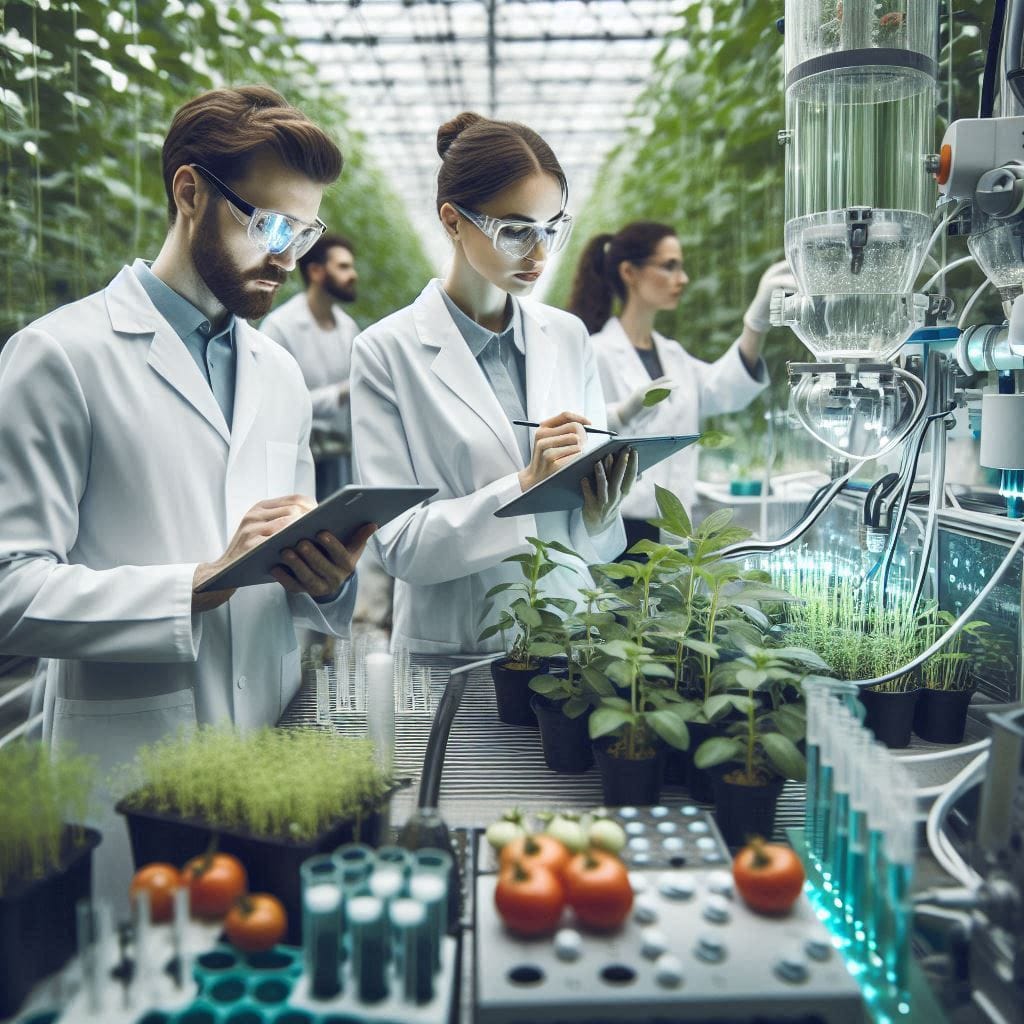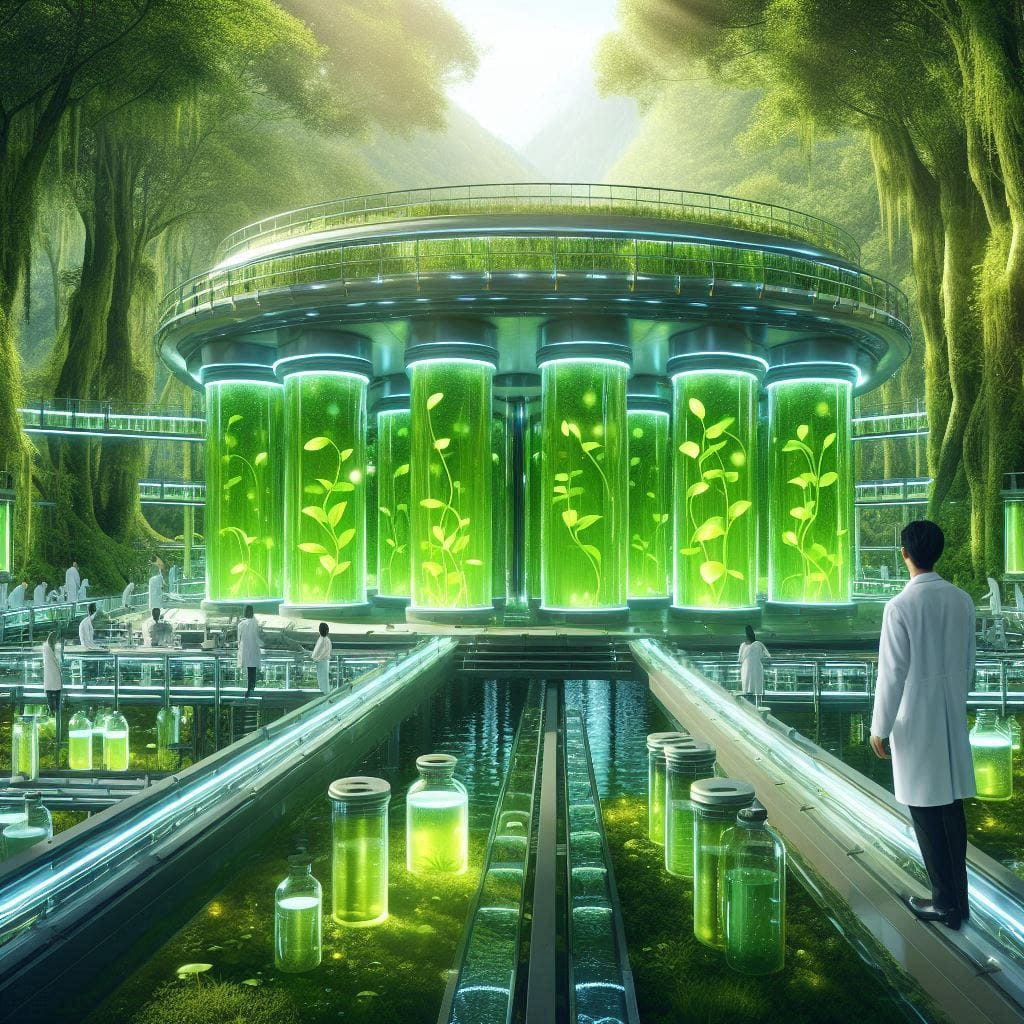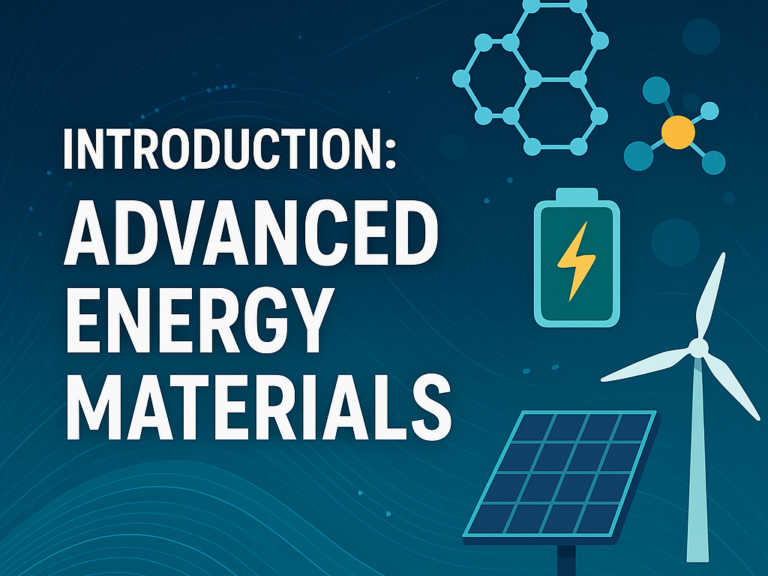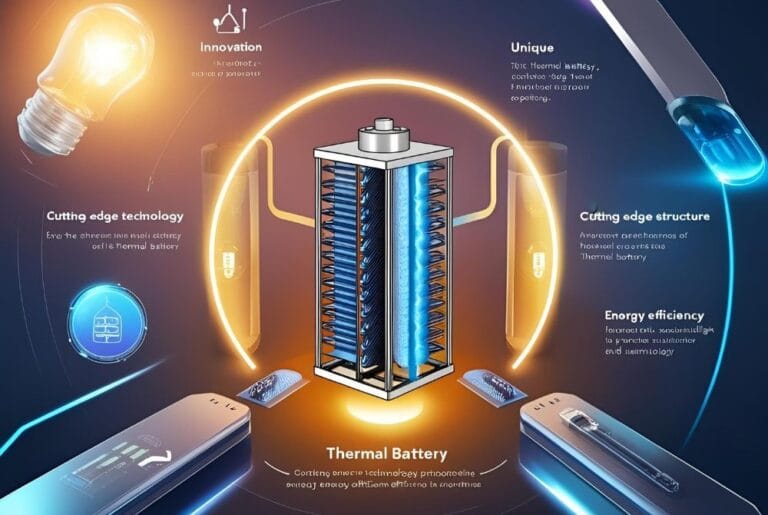Introduction: The Role of Bioengineering in Modern Agriculture
As global populations grow and climate challenges intensify, the agricultural sector is being pushed to adopt more sustainable practices. Bioengineering in agriculture is emerging as a revolutionary tool in creating resilient crops and promoting sustainable biology. Alongside food production, there’s an increasing focus on energy management within the ecosystem, particularly through innovations like algae-based biofuel.
The integration of bioengineering and agriculture is more than just creating crops that can withstand adverse conditions. It’s about developing sustainable practices that harmonize with the environment, ensuring the long-term health of ecosystems. As we face pressing issues like e-waste, pollution, and inefficient energy storage, bioengineered solutions like algae biofuel offer promising pathways. The introduction of engineered organisms not only aids in enhancing food production but also in addressing our dependence on non-renewable energy.

How Bioengineering Supports Sustainability:
Through genetic modifications, bioengineering can enhance traits like drought tolerance, pest resistance, and nutrient efficiency in crops, all while promoting sustainable biology. Moreover, engineered algae, optimized for biofuel production, serve as a renewable energy source that doesn’t compete with food resources.
Bioengineering in Agriculture: Innovations and Applications
Defining Bioengineering in Agriculture:
At its core, bioengineering in agriculture is the application of biotechnology and genetic engineering techniques to modify plants, animals, and microorganisms to make them more productive, resilient, and sustainable. With climate change and depleting resources, bioengineered crops play a critical role in supporting global food security. These crops are designed to grow faster, use fewer resources, and adapt to harsh environmental conditions. In addition to food production, bioengineered algae are at the forefront of renewable energy solutions, particularly in the creation of algae biofuel.
Key Applications in Agriculture:
- Energy-Efficient Crops: Crops like corn and soy are being engineered to store more energy in the form of carbohydrates, which can be converted into biofuels.
- Bioengineered Algae for Biofuel: Algae, bioengineered to produce large amounts of lipids, is a rapidly renewable resource used in producing algae biofuel. Algae can grow in non-arable land and don’t compete with food crops, making it a sustainable alternative to fossil fuels.
- Sustainable Farming Practices: Bioengineered crops can also enhance soil health, requiring fewer chemical fertilizers and promoting sustainable biology in farming ecosystems.
Why It Matters:
Bioengineering offers innovative solutions for increasing agricultural efficiency while minimizing environmental damage. The ability to bioengineer crops that can produce more energy or convert waste into biofuels opens up possibilities for a more sustainable and energy-independent future.
How Do Organisms Store Energy? Biological Mechanisms and Innovations
Understanding Energy Storage in Biology:
Energy storage is a critical process for all living organisms. Organisms, whether plants, animals, or microorganisms, store energy in various forms to ensure their survival. For example, plants and algae convert sunlight into chemical energy through photosynthesis, storing this energy in the form of carbohydrates like glucose or starch. Algae, in particular, store energy in the form of lipids, which can be extracted and refined into biofuels. Understanding how organisms store energy is key to advancements in bioengineering, particularly in the creation of energy-efficient crops and biofuels.

Energy Storage in Plants and Algae:
Plants store energy primarily through carbohydrates, which are later converted into fuel during metabolic processes. Algae, however, are of special interest for their ability to store energy in lipids, which can be harnessed to produce algae biofuel. This renewable fuel offers a significant advantage over traditional fossil fuels, being both cleaner and more sustainable.
Bioengineering for Better Energy Storage:
Through bioengineering, scientists are working on enhancing these natural energy storage mechanisms. For instance, crops can be genetically engineered to store more carbohydrates or lipids, improving their energy efficiency. Bioengineered algae are being developed to store higher lipid concentrations, maximizing their potential for biofuel production.
Long-Term Energy Storage in Biology: From Cells to Sustainable Solutions
Biological Energy Storage Mechanisms:
Biology offers several mechanisms for long-term energy storage, essential for survival in fluctuating environments. Plants store energy in starch, while organisms like algae store energy as lipids. Lipid storage, in particular, is crucial for biofuel production, as these fats can be converted into energy-dense fuel. By understanding these natural processes, bioengineers can design systems that improve energy storage in crops and algae, benefiting both agriculture and energy industries.
Implications for Sustainable Agriculture:
The insights from energy storage biology are vital for creating crops that can not only produce food but also contribute to renewable energy sources. Crops and algae, bioengineered to store more energy, could be integrated into farming systems that simultaneously produce food and biofuels, promoting sustainable biology practices. These innovations can reduce the environmental footprint of agriculture by minimizing the need for external energy inputs.
Algae as an Energy Solution:
Among biological systems, algae stand out for their ability to store significant amounts of energy in the form of lipids. These lipids are the basis for algae biofuel, a renewable source of energy that has gained attention for its potential to replace fossil fuels. By increasing the efficiency of algae’s energy storage through bioengineering, researchers are unlocking new opportunities for energy storage in biofuel production, making algae a key player in the future of renewable energy.

Sustainable Biology: The Future of Bioengineering
Defining Sustainable Biology
Sustainable biology is a branch of science aimed at developing biological systems and practices that meet human needs while reducing the environmental footprint. This approach integrates environmental sustainability with biological innovation, focusing on renewable energy, waste reduction, and conservation of natural resources. Bioengineering plays a central role in this by producing crops that require fewer resources like water and fertilizers, and organisms that can be harnessed to produce renewable fuels.
For instance, algae biofuels exemplify sustainable biology as they offer a cleaner, renewable alternative to fossil fuels. These innovations are crucial for addressing the growing environmental challenges in modern agriculture, such as resource depletion and greenhouse gas emissions. The bioengineering of plants and microorganisms to optimize energy storage and fuel production supports long-term sustainability goals.
Bioengineering for Sustainability
Bioengineering in agriculture is transforming how we produce food and energy. Genetically engineered crops are tailored to survive harsh conditions, requiring less water and fewer chemical inputs, which leads to a significant reduction in agricultural waste and pollution. Moreover, these crops can be designed to enhance energy storage, supporting long-term energy storage biology.
In the context of sustainable energy, bioengineered algae can produce biofuels that offer a renewable and environmentally friendly alternative to conventional fossil fuels. Algae biofuel, in particular, has gained attention for its efficiency in storing energy and its low resource requirements, making it a leading example of how bioengineering contributes to sustainable Green Technology.
Algae Biofuel as a Sustainable Energy Solution
Algae biofuel represents a critical intersection between bioengineering and sustainable energy. Unlike crops used for biofuel production, such as corn and soybeans, algae can grow in non-arable land, including saltwater environments, meaning it doesn’t compete with food production. Its rapid growth rate and high lipid content make it ideal for producing biofuels.
Through bioengineering, researchers are continuously improving algae strains to enhance their energy storage capacities and lipid production, making them more viable for large-scale fuel production. The development of algae biofuel highlights how bioengineering in agriculture is paving the way for sustainable solutions in energy production.
Algae Biofuel: The Future of Renewable Energy
What is Algae Biofuel?
Algae biofuel is a renewable energy source derived from algae, a diverse group of microorganisms capable of photosynthesis. These organisms store energy in the form of lipids, which can be converted into biodiesel, jet fuel, and other types of bioenergy. Algae biofuel offers several advantages over traditional biofuels, such as corn or soybean-based fuels, due to its high energy density and lower land and water requirements.
Why Algae?
Algae stand out as an ideal source for biofuel because they can grow in a variety of environments, including saltwater, brackish water, and even wastewater. Additionally, they have a fast growth rate and high biomass yield, making them more efficient for fuel production than land-based crops. Algae also play a vital role in long-term energy storage biology as they naturally store large amounts of energy, which can be harvested and converted into biofuels.
The Role of Bioengineering in Algae Biofuel
Recent advancements in bioengineering have made algae biofuels more efficient and commercially viable. Through genetic modifications, algae strains have been optimized to produce more lipids, which are crucial for biofuel production. These bioengineered algae not only improve the efficiency of fuel production but also reduce the overall environmental impact, making algae biofuel a critical component of sustainable biology. Bioengineering innovations are also making algae more resistant to environmental stress, ensuring more consistent yields even in non-ideal conditions.

Challenges and Opportunities in Bioengineering for Sustainable Energy
Technological and Economic Challenges
While bioengineering in agriculture and sustainable energy offers promising solutions, several challenges remain. The primary issue is the high cost associated with the development and mass production of bioengineered crops and biofuels. For instance, the production of algae biofuel currently requires significant investments in bioreactor technologies, which increases its cost compared to fossil fuels. Additionally, there are technological barriers related to scaling up biofuel production while maintaining efficiency and energy output.
Another challenge is optimizing long-term energy storage biology in bioengineered organisms. Although crops and algae can store energy efficiently, ensuring that these systems can be scaled for industrial use remains a significant hurdle. More research is needed to improve the economic feasibility of these bioengineering applications.
Opportunities for Innovation
Despite these challenges, the opportunities for innovation in sustainable biology are immense. Future developments in bioengineering could lead to more cost-effective and scalable solutions for algae biofuel production. New technologies, such as synthetic biology and CRISPR gene editing, offer the potential to enhance energy storage capacities in bioengineered crops and algae, pushing the boundaries of bioengineering in agriculture. These advancements could revolutionize agriculture and energy production, providing sustainable alternatives to fossil fuels and improving food security.
Moreover, integrating bioengineered organisms into agricultural systems can reduce the environmental impact of traditional farming methods. For instance, bioengineered plants that require less water and fertilizer will minimize pollution and resource depletion, contributing to sustainable biology.
Conclusion: Bridging Agriculture, Bioengineering, and Sustainable Energy
Summarize the Potential
The future of bioengineering in agriculture and sustainable energy solutions lies in harnessing the power of biological systems to address environmental and resource challenges. Through innovations in sustainable biology and the development of algae biofuel, bioengineering is shaping a future where agriculture and energy production are both more efficient and eco-friendly. As we continue to advance bioengineering techniques, the potential for long-term energy storage and renewable energy solutions will expand, leading to more sustainable agricultural and industrial practices.
Readers are encouraged to stay informed about the latest advancements in bioengineering in agriculture and support initiatives that promote sustainable energy and farming practices. By adopting new technologies like algae biofuel, we can collectively work toward a greener, more sustainable future.






